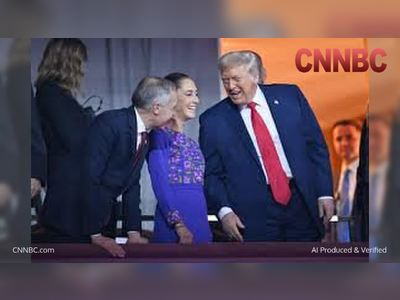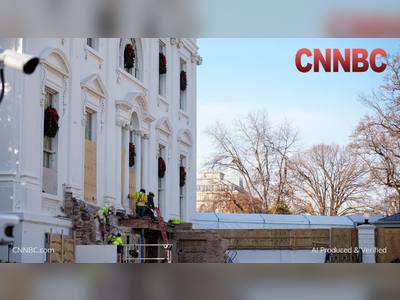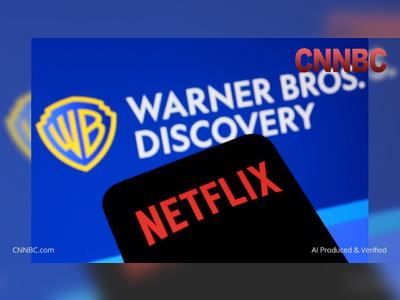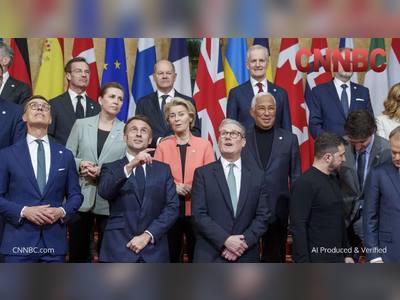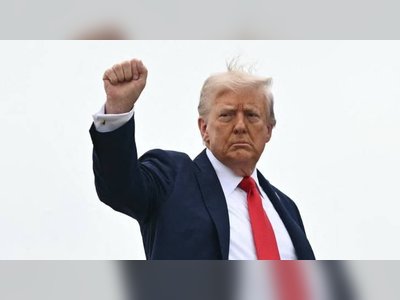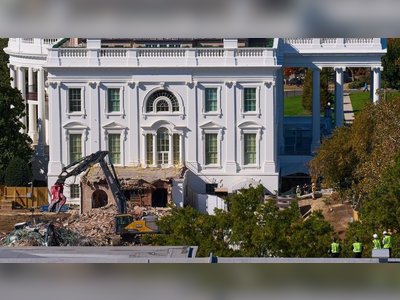A Vote Worth a Trillion Dollars: Elon Musk’s Defining Day
Tesla shareholders must decide whether to approve a new compensation package for Elon Musk that could make him the world’s first trillionaire, or risk his departure from the company.
Tesla’s shareholders face a historic decision at today’s annual meeting: whether to approve a new compensation plan for Chief Executive Elon Musk that could ultimately be worth up to one trillion dollars—or risk losing him altogether.
The company’s board has warned that Musk, already the world’s richest person, has hinted he may “pursue other ventures” if the plan is not approved, a statement seen as adding pressure on investors to vote in his favor.
The proposed package would grant Musk the right to purchase an additional 423.7 million Tesla shares over the next decade.
The value of those shares could reach one trillion dollars if Tesla’s market capitalization climbs to eight and a half trillion dollars and meets a series of performance and operational goals.
To achieve that valuation, Tesla’s stock price would need to rise by more than four hundred sixty-six percent from its current level—about seventy percent higher than the market value of Nvidia, which recently became the world’s most valuable company at five trillion dollars.
“If he earns a trillion dollars over ten years, that’s roughly two hundred seventy-five million dollars a day,” said Ross Gerber, CEO of Gerber Kawasaki Wealth and Investment Management, once a major Tesla investor and now a vocal critic of Musk.
“I just don’t understand how anyone can think that’s fair to shareholders”.
Tesla has reported weaker financial results in the first half of the year, with declining sales and profits, though Musk and company executives dismiss these setbacks.
They argue that Tesla is shifting its focus from purely electric vehicle sales to the development of autonomous cars, including a fleet of self-driving “robotaxis” and humanoid robots.
“Shareholders will support the plan overwhelmingly because Musk is Tesla’s most valuable asset,” said Dan Ives, an analyst at Wedbush Securities and one of Wall Street’s most prominent Tesla supporters.
“Tesla needs Musk to lead it into the future of autonomy and robotics”.
Still, these products and concepts remain under development and are not yet generating revenue.
Even if the plan is approved, Musk will only receive the potential share grants if the company meets its ambitious targets—a task that will require solving Tesla’s operational challenges and delivering on its long-term promises.
Despite expectations that the proposal will pass, several major investment funds have announced they will vote against it, including Norway’s sovereign wealth fund and public pension funds in California and New York.
Influential proxy advisory firms Glass Lewis and ISS also urged institutional investors to oppose the plan, warning that Musk’s potential stock options would dilute the holdings of other shareholders.
“The performance targets in the proposed compensation plan are often vague, undemanding, and subject to significant board discretion,” Glass Lewis noted in its recommendation.
During Tesla’s most recent investor call, Musk lashed out at the advisory firms, calling them “corporate terrorists”.
He said their influence over institutional investors was one of the reasons he needed a larger personal stake in the company.
“It’s not that I plan to cash out,” Musk explained.
“I just need enough voting control to ensure strong leadership—but not so much that I couldn’t be replaced if I went crazy”.
In the previous shareholder vote on Musk’s compensation, eighty-four percent supported the plan, and most analysts believe the outcome will be similar this time, despite the opposition.
Today’s decision will likely determine not only Musk’s future at Tesla but also the company’s direction in the next decade—toward either its most ambitious technological transformation or its most controversial corporate gamble yet.
The company’s board has warned that Musk, already the world’s richest person, has hinted he may “pursue other ventures” if the plan is not approved, a statement seen as adding pressure on investors to vote in his favor.
The proposed package would grant Musk the right to purchase an additional 423.7 million Tesla shares over the next decade.
The value of those shares could reach one trillion dollars if Tesla’s market capitalization climbs to eight and a half trillion dollars and meets a series of performance and operational goals.
To achieve that valuation, Tesla’s stock price would need to rise by more than four hundred sixty-six percent from its current level—about seventy percent higher than the market value of Nvidia, which recently became the world’s most valuable company at five trillion dollars.
“If he earns a trillion dollars over ten years, that’s roughly two hundred seventy-five million dollars a day,” said Ross Gerber, CEO of Gerber Kawasaki Wealth and Investment Management, once a major Tesla investor and now a vocal critic of Musk.
“I just don’t understand how anyone can think that’s fair to shareholders”.
Tesla has reported weaker financial results in the first half of the year, with declining sales and profits, though Musk and company executives dismiss these setbacks.
They argue that Tesla is shifting its focus from purely electric vehicle sales to the development of autonomous cars, including a fleet of self-driving “robotaxis” and humanoid robots.
“Shareholders will support the plan overwhelmingly because Musk is Tesla’s most valuable asset,” said Dan Ives, an analyst at Wedbush Securities and one of Wall Street’s most prominent Tesla supporters.
“Tesla needs Musk to lead it into the future of autonomy and robotics”.
Still, these products and concepts remain under development and are not yet generating revenue.
Even if the plan is approved, Musk will only receive the potential share grants if the company meets its ambitious targets—a task that will require solving Tesla’s operational challenges and delivering on its long-term promises.
Despite expectations that the proposal will pass, several major investment funds have announced they will vote against it, including Norway’s sovereign wealth fund and public pension funds in California and New York.
Influential proxy advisory firms Glass Lewis and ISS also urged institutional investors to oppose the plan, warning that Musk’s potential stock options would dilute the holdings of other shareholders.
“The performance targets in the proposed compensation plan are often vague, undemanding, and subject to significant board discretion,” Glass Lewis noted in its recommendation.
During Tesla’s most recent investor call, Musk lashed out at the advisory firms, calling them “corporate terrorists”.
He said their influence over institutional investors was one of the reasons he needed a larger personal stake in the company.
“It’s not that I plan to cash out,” Musk explained.
“I just need enough voting control to ensure strong leadership—but not so much that I couldn’t be replaced if I went crazy”.
In the previous shareholder vote on Musk’s compensation, eighty-four percent supported the plan, and most analysts believe the outcome will be similar this time, despite the opposition.
Today’s decision will likely determine not only Musk’s future at Tesla but also the company’s direction in the next decade—toward either its most ambitious technological transformation or its most controversial corporate gamble yet.

